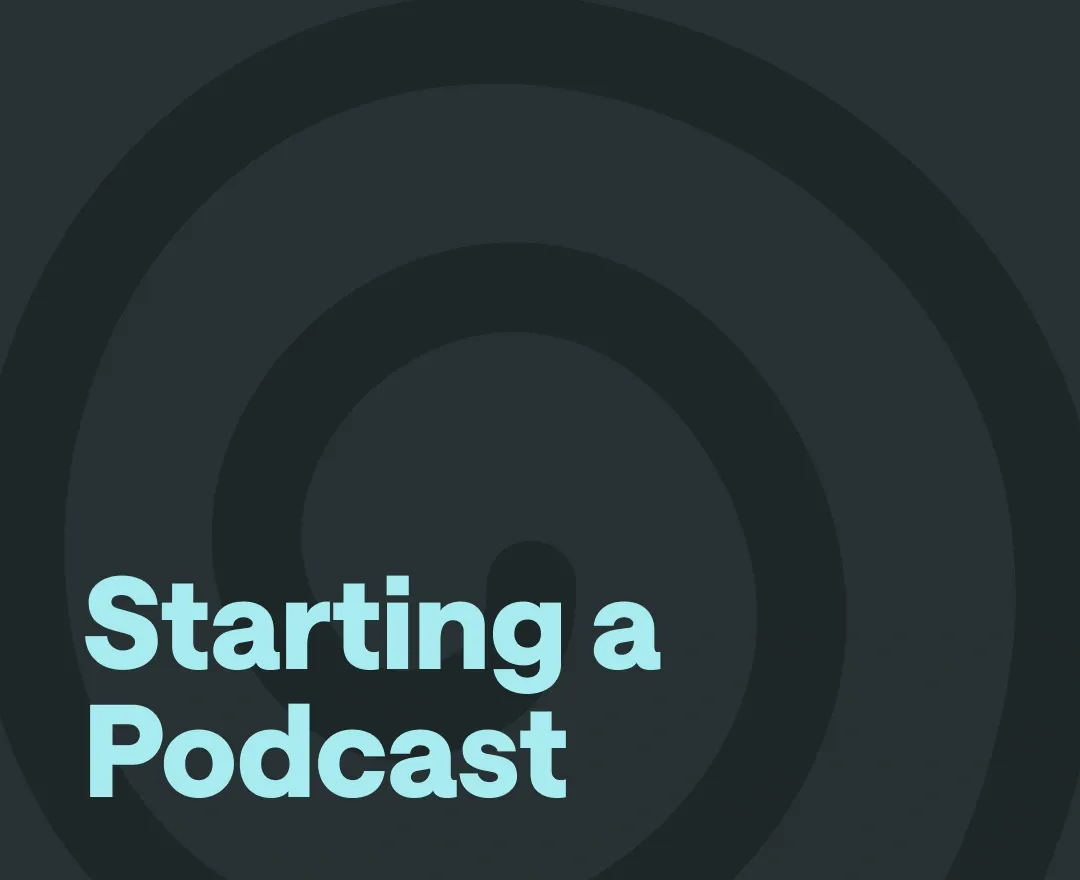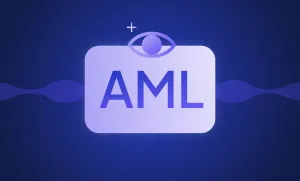Talking to a brick wall never feels right. Planning and recording a podcast for a brick wall feels even worse. So how do you start a podcast with no audience and how do you start attracting your first listeners? If these questions bother you, you’re in the right place. We’ll tell you how to start a podcast with no audience and still make it work!
5 Tips on Starting a Podcast With No Audience
1) Choose the Perfect Niche
Choosing the right niche for your podcast is a critical step in setting the foundation for success. It's more than just picking a topic; it's about finding the sweet spot where your passion, knowledge, and your potential audience's interests intersect.
Remember, that you will be creating content for this specific niche for months, if not years, so it really should be something you’re genuinely passionate about. But your personal interests should not be your only criteria when choosing your podcast topic.
Before committing to a niche, it's essential to research potential options. Explore the podcast landscape to see which niches are underserved or where you can offer a fresh perspective. Analyze your potential competitors, their content, and their audience engagement to gain insights into what works and what gaps exist.
Remember, it's about being in the right place at the right time.Take a closer look at the current social and political landscape worldwide. Try to find which trending issues and subjects haven't received much podcast coverage. If you can produce a podcast on a topic in high demand that hasn't been extensively explored, your podcast is likely to gain rapid popularity.
As highlighted by BuzzSprout, success often boils down to selecting the appropriate timing and topic that resonates with the culture's current needs. Take, for instance, the Pantsuit Politics podcast, which delved into political discussions from two distinct viewpoints. This podcast featured two women, one from the Republican party and one from the Democratic party, and its concept was inherently fascinating. But the real reason the podcast went viral was because of its timing. The show launched just before the US elections, and as the elections unfolded, to quote BuzzSprout, “the need for that voice was so magic, it just catapulted them.”
2) Build an Audience from Scratch
To build your audience from scratch, begin by tapping into your existing network of friends, family, colleagues, and acquaintances. These individuals can be your initial supporters and advocates. Share your podcast with them and encourage them to listen, provide feedback, and spread the word. Your personal network can serve as a valuable launchpad for your podcast's growth.
Establishing a strong online presence is also crucial for reaching a broader audience. Utilize social media platforms such as Facebook, Twitter, Instagram, and LinkedIn to promote your podcast and engage with potential listeners.
Share teaser clips, behind-the-scenes content, and relevant updates to keep your audience informed and excited. Additionally, consider creating an email newsletter to stay connected with your audience and provide exclusive content or insights.
Finally, seek opportunities to collaborate with other podcasters, especially those within your niche or industry. Co-hosting episodes, appearing as a guest on other podcasts, or participating in cross-promotions can introduce your podcast to new audiences.
3) Strategize Listener Engagement
Before diving into content creation, it's essential to understand who your target audience is. Creating listener personas, or detailed profiles of your ideal listeners, can help you tailor your content to their preferences and needs. Consider demographics, interests, pain points, and aspirations. By visualizing your audience, you can speak directly to them, making your podcast more relatable and valuable.
Once you identify your listener persona, it’s time you start planning your strategy on how to build a community around your niche. Encourage discussions, feedback, and interactions through social media, forums, or dedicated online groups. Offer your listeners a platform to connect, share their thoughts, and feel part of a larger conversation.
Finally, make sure you also establish a relatable and authentic podcast persona. Your podcast persona is your unique voice and style. It's the personality that shines through your episodes and resonates with your audience. To establish a relatable and authentic podcast persona, be yourself.
Authenticity fosters trust and connection. Share personal anecdotes, be honest about your passions and beliefs, and embrace vulnerability when appropriate. Listeners are drawn to hosts who feel real and relatable.
4) Manage Expectations and Adapt Your Podcast
Starting a podcast without an established following can be a test of patience and adaptability. You need to keep in mind two important aspects: not obsessing over audience numbers and avoiding assumptions about your podcast's format and content. In the early stages of your podcast, it's natural to keep a keen eye on your audience numbers.
However, it's crucial not to become overly obsessed with these metrics, especially during the initial phase. Even the most exceptional podcasts take time to gain traction and build an audience. It's not uncommon for podcasts to have slow growth at the outset. Instead of fixating on the numbers, focus on consistently producing high-quality content and engaging with your listeners.
Another pitfall to avoid is assuming that you've perfected your podcast format, content, and style right from the start. Remain open to feedback and if you think your content needs to be adapted, go for it. As your audience grows, their preferences may evolve, so stay flexible and open to new adjustments.
Remember that the early days of podcasting can be a learning experience. Embrace the journey, be open to refining your content, and don't be discouraged by slow growth
5) Monitor Podcast Analytics
Podcast analytics provide valuable insights into your podcast's performance. Keeping a close watch on these metrics can help you understand your audience, measure your growth, and make informed decisions to enhance your content.
Some key podcast analytics to monitor include:
- Downloads and Listens: Track the number of downloads and listens for each episode. Analyzing trends can help you identify which episodes resonate most with your audience.
- Listener Demographics: Understand the demographics of your audience, including their location, age, and gender. This information can guide your content and marketing strategies.
- Listener Retention: Measure listener retention rates to identify where listeners drop off during episodes. This can help you refine your content and keep your audience engaged.
- Source of Traffic: Determine where your listeners are discovering your podcast, whether through social media, search engines, or other platforms. This information can guide your promotional efforts.
- Reviews and Ratings: Monitor listener reviews and ratings on podcast directories like Apple Podcasts. Positive reviews can boost your podcast's credibility and visibility.
- Engagement Metrics: Track engagement on social media, including likes, shares, and comments related to your podcast. Engaging with your audience on these platforms can foster a stronger connection.
By regularly analyzing these metrics, you can gain insights into your podcast's performance and make data-driven decisions to enhance your content, promotional strategies, and overall podcast experience. Here are some good podcast analytics tools to have at your disposal.
Podcasters Who Started Small
The world of podcasting has seen numerous success stories where individuals began with modest beginnings and a passion for their craft. These podcasters took their initial small steps and eventually achieved remarkable success in the medium. Here are a few inspiring examples:
1. Lore
Aaron Mahnke's journey in podcasting began when he was a struggling writer, trying to get his work noticed. He had written stories but found it challenging to gain recognition. Aaron recorded one of his stories and shared it with a friend, who promptly declared, "This is a podcast." Aaron, with some effort, learned how to turn it into a podcast and published it. People embraced it immediately, and it gained popularity rapidly.
Aaron's podcast, "Lore," took off at the right time. Back then, there weren't many storytelling podcasts to choose from, making it a unique and captivating option. Today, "Lore" is not only a successful podcast but has also been adapted into a TV show on Amazon. Despite his immense success, he has remained independent throughout his journey.
2. Myths and Legends
Jason, the creator of the podcast "Myths and Legends," is another remarkable example of someone who started as an unknown but had a passion for storytelling. He began his podcasting journey and, like Aaron, it quickly gained traction. Just like Aaron, Jason's dedication to his craft has paid off and he has also chosen to keep his show independent.
3. You Must Remember This
Karina Longworth embarked on her podcasting journey with "You Must Remember This" as a passion project while working as a film critic. She started this endeavor all by herself, driven by her love for the subject matter. Despite her initial solo efforts, her podcast has garnered well over 100,000 subscribers. Furthermore, her dedication and the quality of her work caught the attention of Slate, which recently picked up her podcast.
4. The Fantasy Footballers
In the realm of sports podcasts, where celebrity hosts and professional athletes often dominate, "The Fantasy Footballers" stands out as an exception. This podcast was founded by three friends working at a video game company. Their camaraderie, combined with a strong Twitter presence, helped their show gain traction. What started as a fun project among buddies turned into a full-time gig as they continued to grow their audience. Today, "The Fantasy Footballers" boasts over 50 million downloads, and podcasting about football has become their primary occupation.
The Challenge of Starting with No Audience
In a world where countless podcasts compete for listeners' attention, beginning with no established audience can be quite intimidating. But, take heart - it's a challenge that numerous successful podcasters have conquered, and with the right strategies and mindset, you can too.Before we delve into what it takes to launch a successful podcast, it's essential to explore the challenges you may encounter along the way. This way, you'll be better prepared to overcome them.
Unpredictable Growth Rates: When you start a podcast with no audience, predicting the rate at which your listener base will grow can be challenging. Some may experience slow and steady growth, while others may find their audience expanding rapidly. However, some podcasters may encounter frustrating plateaus or periods of stagnation where it seems their efforts aren't yielding results. These unpredictable growth patterns can be discouraging and test your patience.
Content Fatigue: Crafting engaging content consistently can be demanding. When you're starting with no audience, the initial lack of feedback or interaction can lead to uncertainty about whether your content is resonating with listeners. This uncertainty can contribute to content fatigue, causing you to question the value of your efforts and potentially leading to burnout.
Limited Resources: Building an audience often requires time and resources for promotion, equipment, and software. It's possible to overspend or invest too much time without immediate returns, which can strain your finances and lead to frustration.
Lack of Validation: In the early stages, when your podcast has no audience or few listeners, you may struggle with self-doubt. The absence of validation in the form of feedback, reviews, or listener engagement can make it challenging to stay motivated and confident in your content.
Navigating Competition: The podcasting landscape is crowded, with thousands of new shows launching regularly. Rising above the competition when you're starting with no audience can be a formidable task. Standing out and gaining the attention of potential listeners may prove more challenging than anticipated.
Balancing Other Commitments: Many podcasters start their shows as a side project while juggling other responsibilities, such as full-time jobs or family commitments. Maintaining the necessary consistency and dedication to your podcast when starting with no audience can be difficult amidst competing demands on your time and energy.
To overcome these possible difficulties when you start a podcast without an audience, you need determination, flexibility, and a strong dedication to your podcasting objectives. Although it might be tough, success is achievable for those who keep going and keep improving in the world of podcasting.
Final Thoughts
In the world of podcasting, success often begins with the courage to start, even if you're launching without an audience. The stories of those who began as nobodies and rose to prominence in the podcasting realm serve as a testament to the limitless possibilities. So, if you have a passion, an idea, or a story to share, don't hesitate—start podcasting today.
And for those taking their first steps, consider trying Podcastle, a free podcast recording, editing, and hosting platform designed with beginners in mind. Your podcasting journey awaits.








